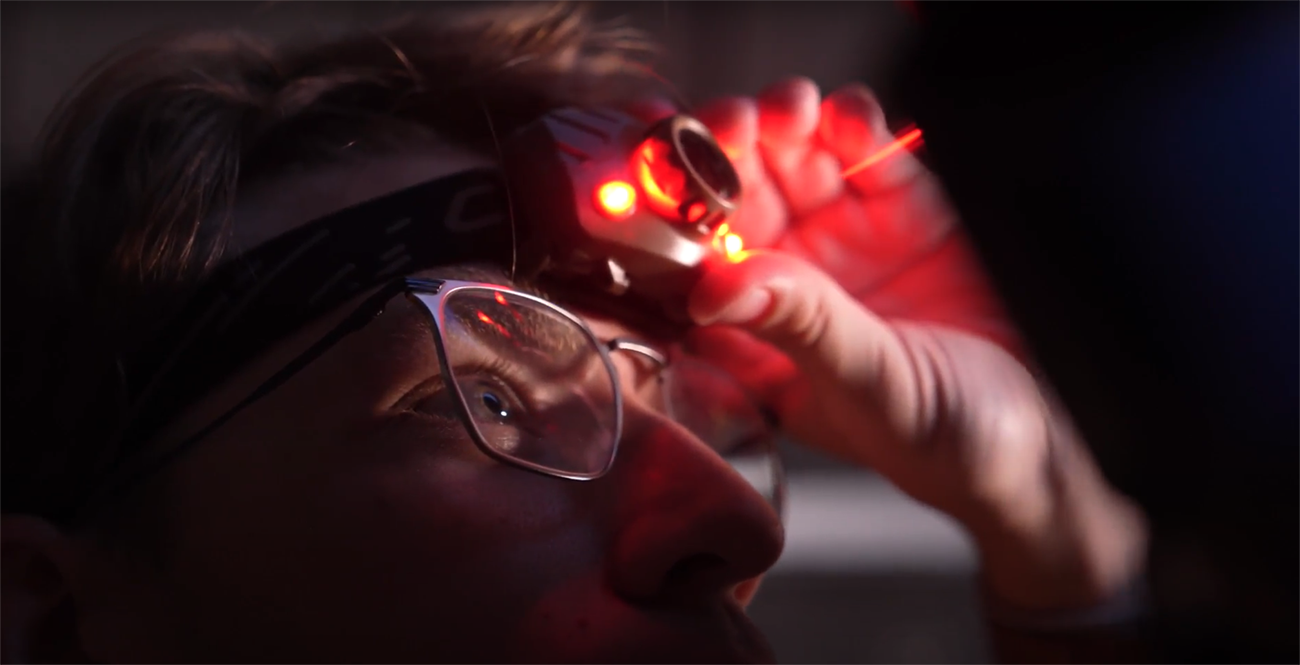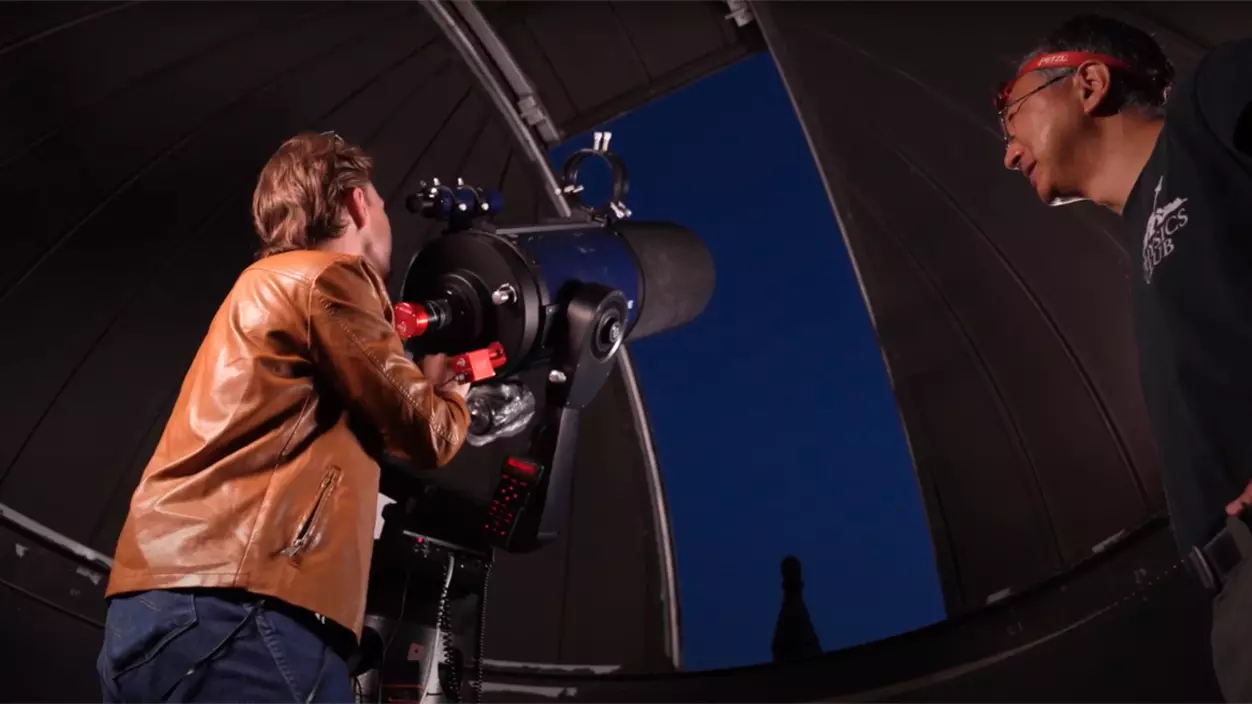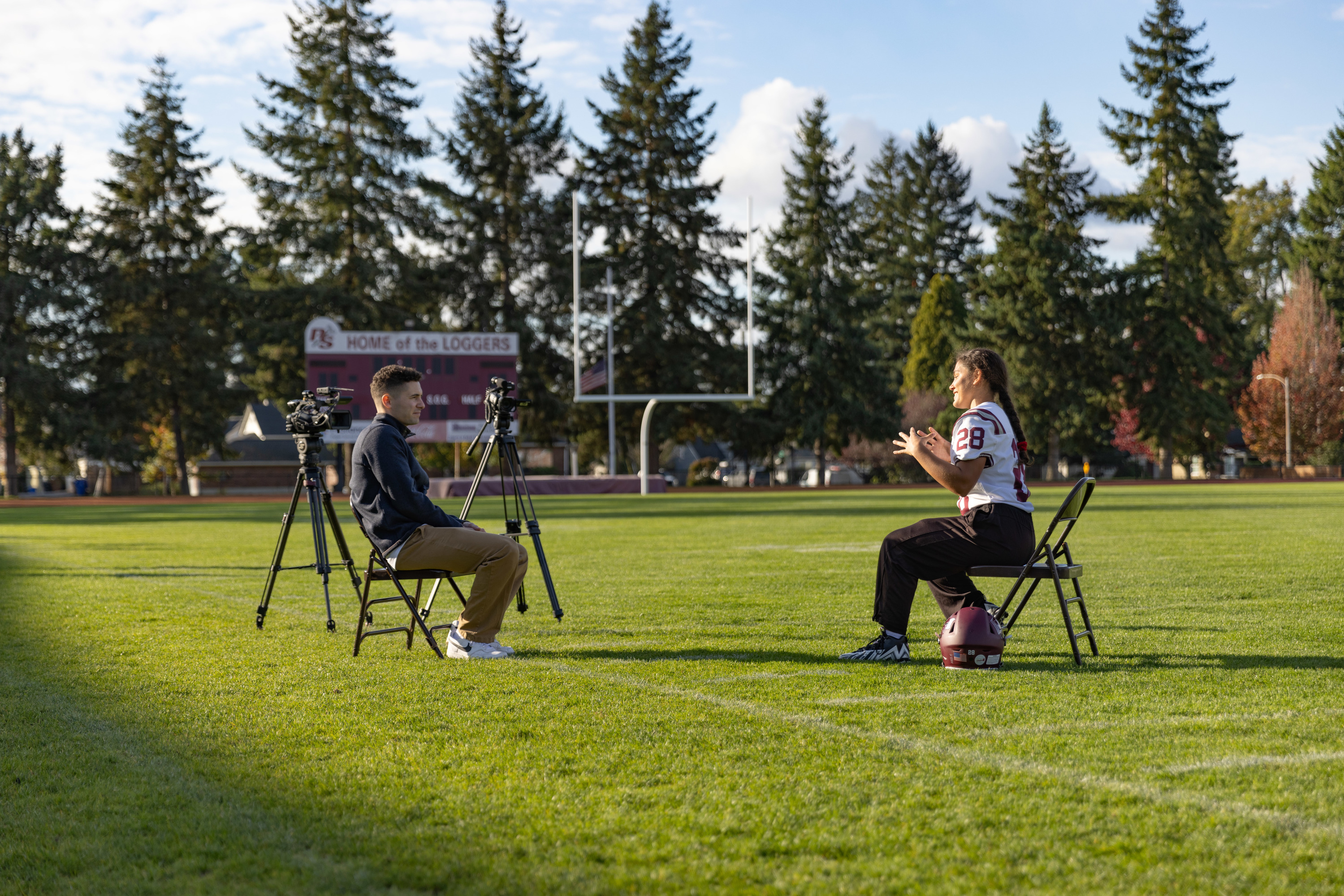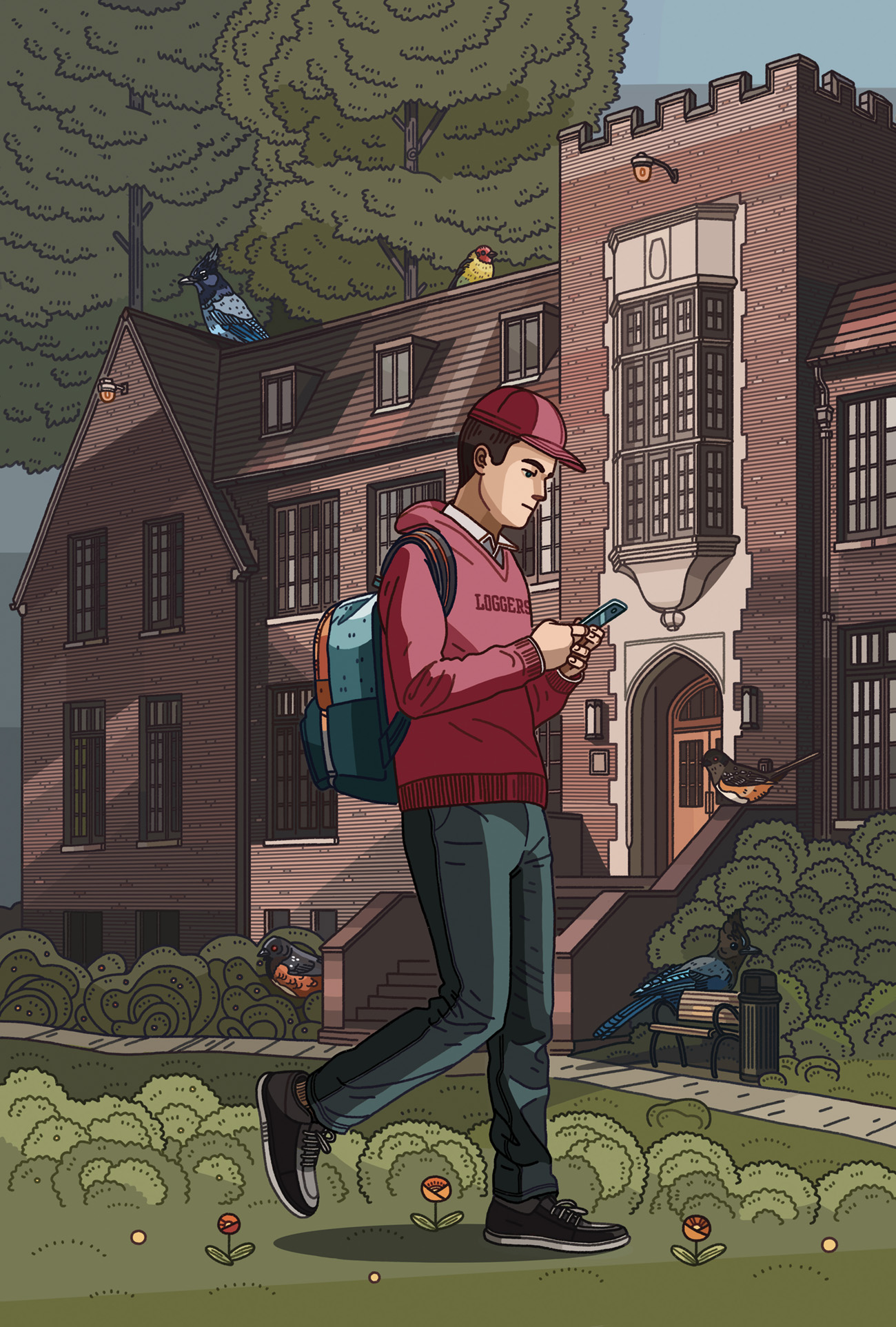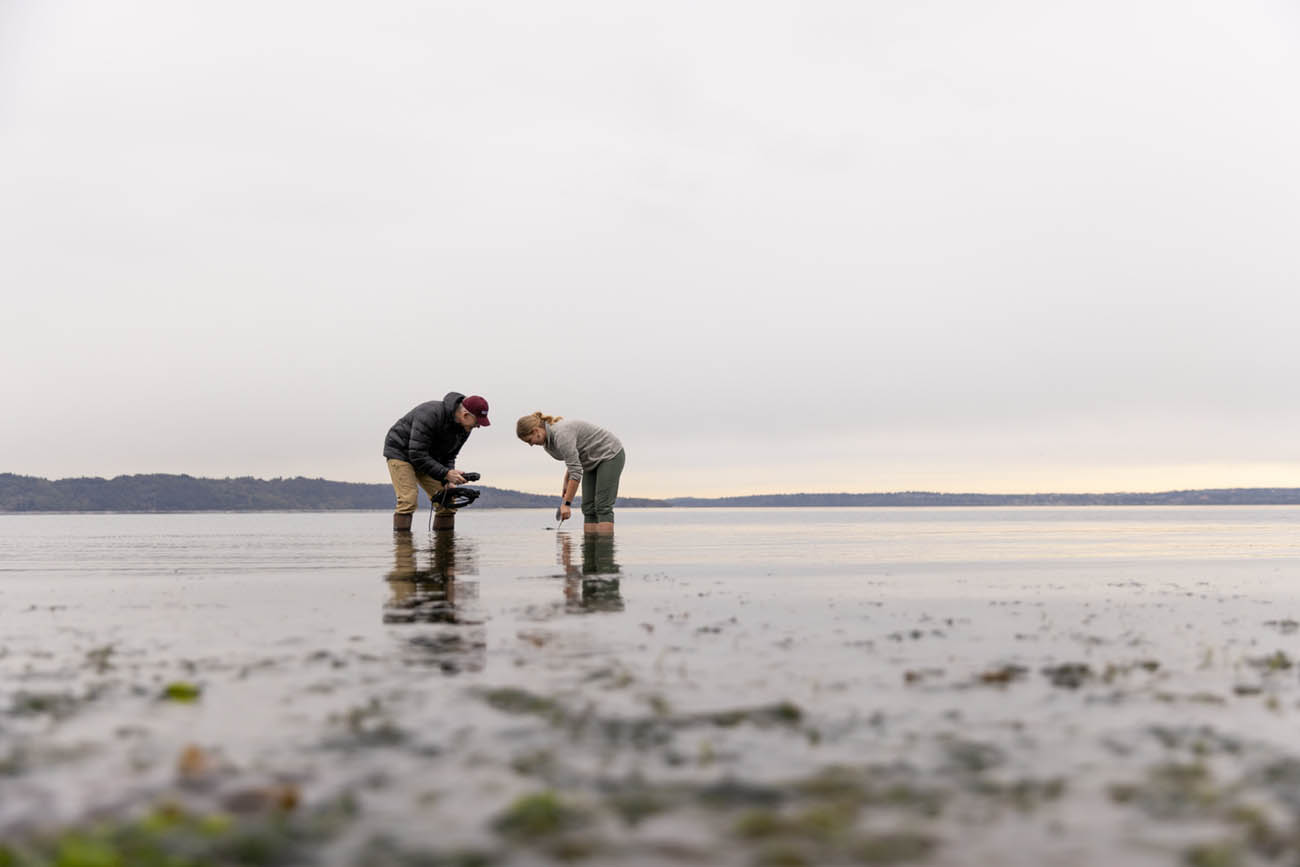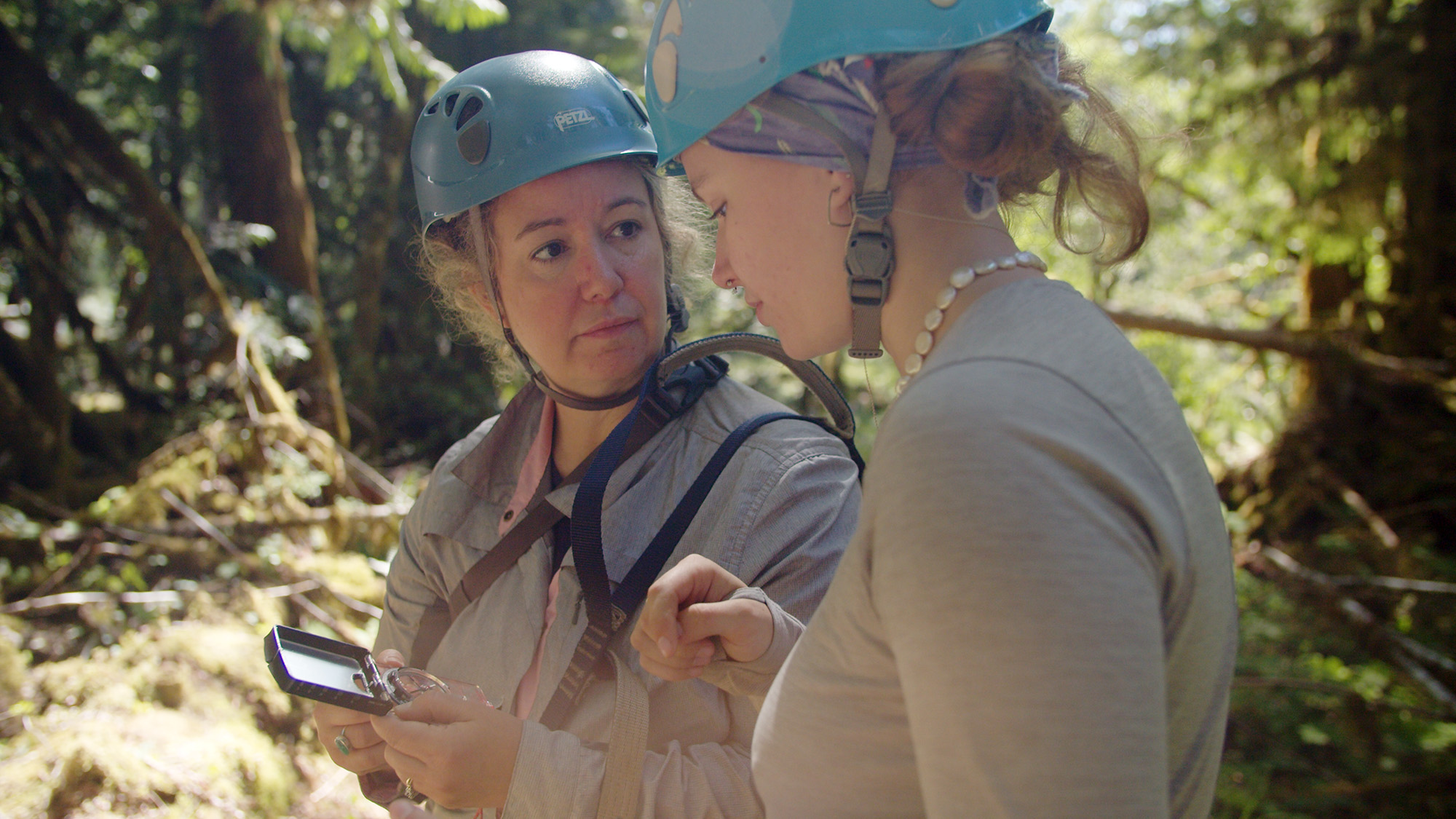Austin Glock ’23 spent his nights last summer in the Puget Sound observatory atop Thompson Hall, looking for planets outside our solar system.
It’s a cold, clear night in the pitch-black dome of the observatory at University of Puget Sound. In the dark, Austin Glock ’23 makes minute adjustments to the telescope by the light of a headlamp. He’s focusing on Arcturus, a bright orange star located 37 lightyears away. He’s using Arcturus to calibrate the telescope in order to observe something that few people have ever seen—a planet orbiting another star in our galaxy.
“I’m doing differential star photometry, which means we’re looking at stars with light levels that fluctuate. This could be due to a number of factors, but one thing it might mean is that there’s a planet orbiting that star,” Glock says. “By measuring how much the light dips, how long it dips for, and the shape of the resulting light curve, we can determine whether or not it is an exoplanet [one found outside of our solar system] and get some information about its orbital period and size.”
Glock spent most nights last summer in the observatory, which is located on the roof of Thompson Hall clock tower and requires climbing eight flights of stairs and one ladder to access. His project is part of Puget Sound’s long-running summer research program, which enables undergraduate students to design and carry out projects in the sciences and humanities under the guidance of a faculty advisor.
